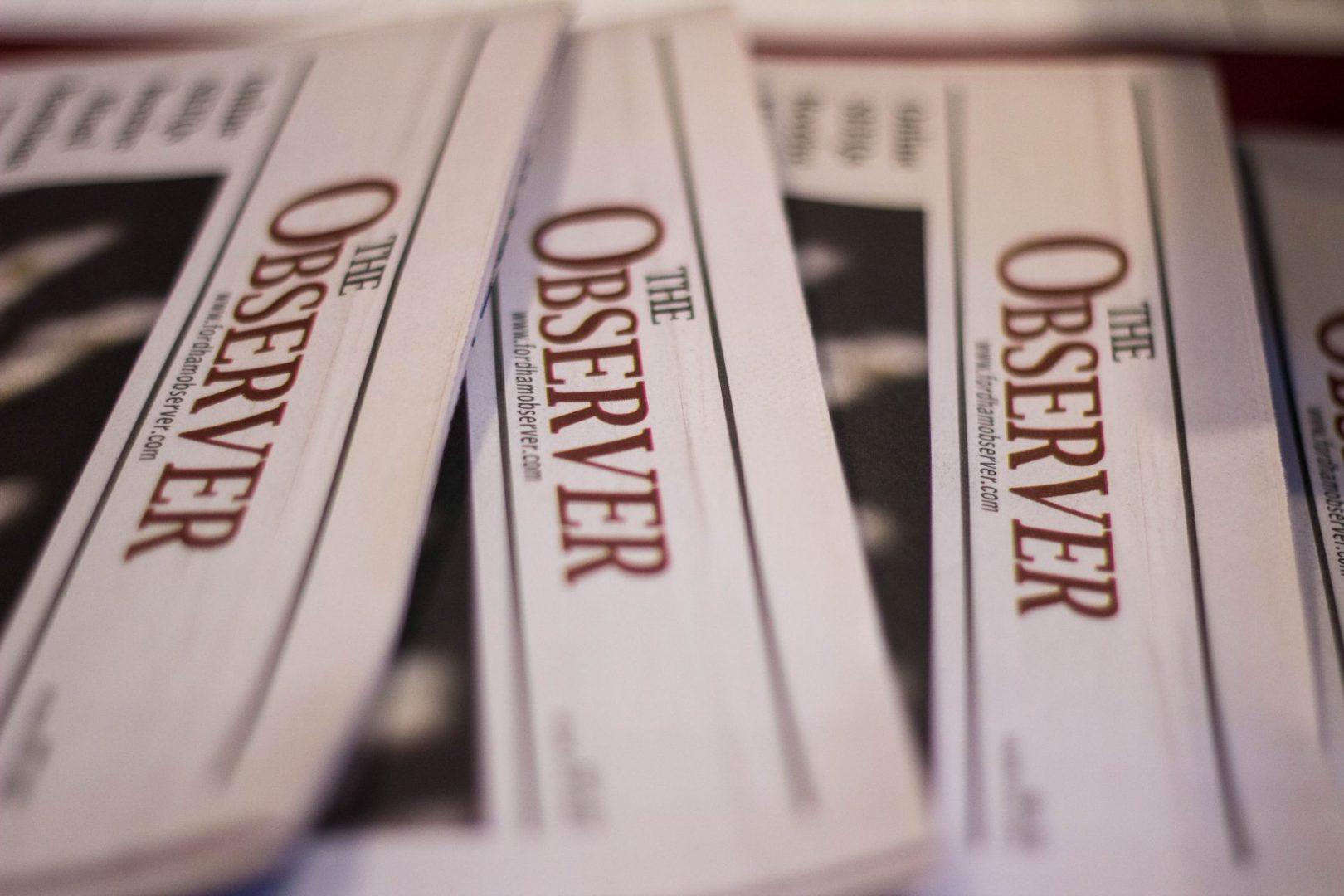Staff Editorial: What It Means To Confront Hate
December 4, 2019
Since early November, racist graffiti, threatening statements and other hate crimes have thrust Syracuse University into a state of fear — disrupting classes, creating a mass protest movement and even drawing the attention of Albany. Although Syracuse University may be five hours upstate, recent events at Fordham have sharply reduced this distance.
Most recently, on Nov. 20, 2019, Public Safety reported that a Star of David was ripped from the interfaith ministry bulletin board and destroyed. It was the third of a series of attacks defacing material on the interfaith ministry board.
It is imperative that we as students vocalize our concerns and convictions against prejudicial acts.
Fordham’s administration has set a high standard in their response to the latest events. By bringing the case to law enforcement, condemning the actions with vehement sincerity and sharing community resources to discuss the incident, they’ve set an example that the rest of us would do well to follow.
We are not looking for a “safe space,” shielded from any dissenting or uncomfortable opinions. We are simply looking for a space where we know that marginalized groups will not be preyed upon and where hateful rhetoric will be punished without sacrificing free speech.
But how would we create that space? Reacting to isolated events is not enough. Fordham’s response so far has been commendable, but it is of limited use unless progress is actually made to prevent further incidents.
The people who push hateful rhetoric can’t be silenced by ostracization. In the dark corners of the internet, on vitriolic message boards and toxic forums, the outcasts meet and collaborate, radicalizing each other; at worst, they spur each other to dangerous action.
After all, the culprit behind the vandalism on the interfaith ministry board was not ignorant of the implications. Their cowardly actions were the result of a desire to transgress, to get attention, to feel as if they had struck a blow against the culture that had shunned them for their prejudice. As difficult as it may be, we must engage honestly and openly with those who might not afford us the same courtesy, lest we create our own monsters.
If you are the target of such vitriol, no obligation exists to deal with these aggressors. If someone is attempting to push you off a cliff, you’re under no obligation to follow their command. However, if you see a friend walking along a cliff’s edge, a moral obligation exists to challenge their beliefs and stop them before they go too far.
If a friend makes a statement that implies that another group is not worthy of respect, expose the reality of their participation in the dehumanization of certain groups. If they say that it was just a joke, question the stipulations underlying their humor. When exposed to the light, bigotry stumbles for explanations.
As students, we are neither completely capable nor solely responsible for prying cruelty’s hands from our college campuses. But we can prevent such ideologies from slithering off into the darkness by confronting them wherever they manifest in our lives.













